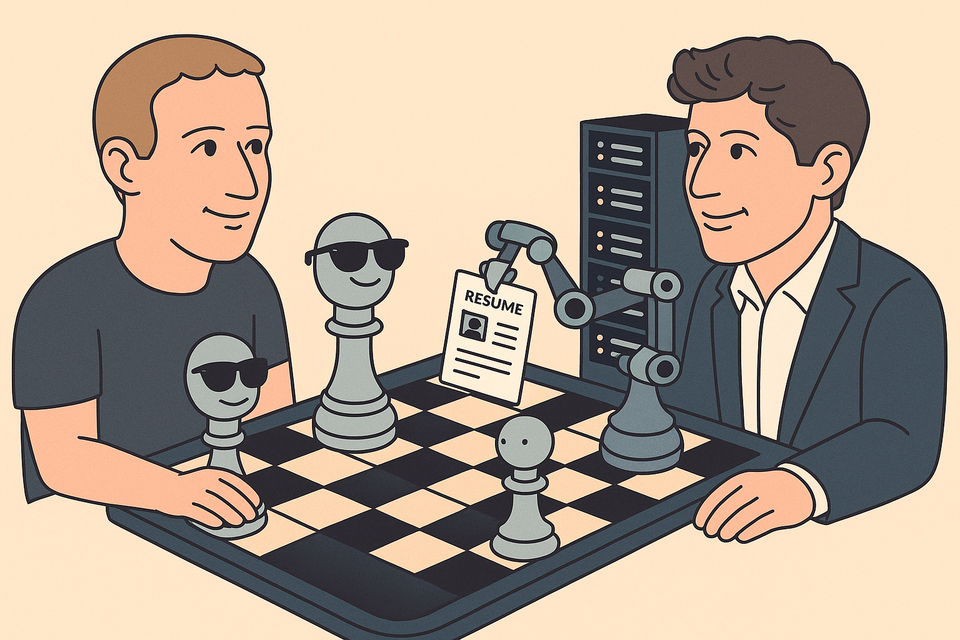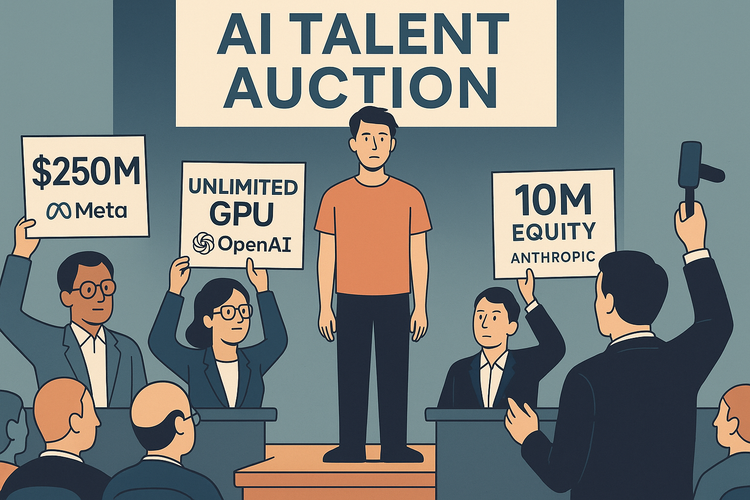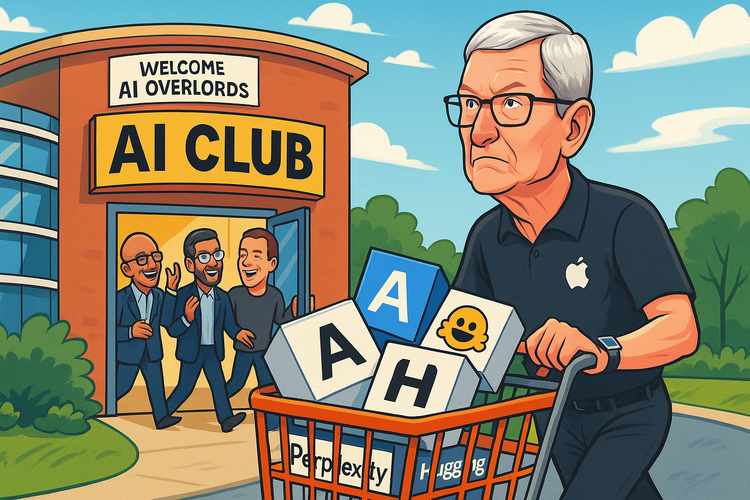The AI War You Didn’t See Coming: Meta’s “Personal Superintelligence” vs GPT-5

“Zuckerberg wants you to have a best friend. Altman wants you to outsource your brain. Either way, you’re the product.”
Summary
Meta wants to put a therapist in your sunglasses. OpenAI wants to automate your job — and your boss's.
One wants to empower you. The other wants to replace you.
Welcome to the AI custody battle for your attention span.
Introduction – Why Now?
So it turns out August isn't just about heatwaves and Taylor Swift tour dates. It's also when two tech titans decided to settle a very polite turf war over your brain.
On one side: Meta, who wants you to have your own AI sidekick. One that whispers sweet context into your ear while you doomscroll through Instagram.
On the other: OpenAI, who built GPT-5 — a model so smart it made Sam Altman feel "useless." (His words, not mine.)
This isn't just a product race. It's an existential thesis on what AI should be:
A best friend? Or your new overlord with an API?
Trend Breakdown
1. Zuckerberg's Vision: Your New Bestie
In July, Mark Zuckerberg wrote a letter — because apparently we're still doing that — saying AI should help you "become the person you want to be."
(NBC News)
He calls it "personal superintelligence," which sounds like a Marvel sidekick but is really just an AI that knows your favorite meme, your secret crush, and possibly your blood type.
The idea is: AI should enhance your life, not replace it. It should know your dog’s name, not your quarterly KPI. It should care about your feelings. Or at least fake it convincingly.
2. Altman’s Pitch: Automation, But Make It Existential
Meanwhile, Sam Altman is rolling out GPT-5, a model designed to solve complex problems — and maybe also your career prospects.
- It’s multimodal (text, images, video, vibes)
- It has memory (because you don’t)
- It’s being tested by companies in private, which means it’s already solving things we probably shouldn’t talk about
He described it as a “leap forward,” which in AI usually means it’s either brilliant or about to hallucinate your tax return.
Altman's goal? Fully autonomous task execution. Your goal? Not being executed by it.
The Stats, aka Big Numbers That Sound Impressive
Meta:
- $69B planned in AI spend this year (nice) (NYT)
- 500M monthly users already interacting with Meta AI
- Ray-Ban smart glasses up 200% in sales, because nothing says future like a face computer
OpenAI:
- GPT-5 set to launch any minute now
- 1 million token context window (that’s like… infinite, but more specific) (India Today)
- Altman said the model solved a problem he couldn’t solve. Not clear if that problem was “how to stop GPT from replacing me.”
Multimodal, Memory, and the OS War You Didn't Ask For
| Feature | Meta AI | OpenAI GPT-5 |
|---|---|---|
| Approach | Seamless in-app integration (WhatsApp, IG, FB) | API-first, Azure-locked |
| Memory | Long-term user profiles based on behavior | User-controlled memory modules |
| Multimodal | Real-time input: text + voice + camera + vibes | Unified input: text, image, video |
| Philosophy | AI should feel like a friend | AI should get your work done (quietly) |
So basically: Meta is building a context-aware sidekick.
OpenAI is building a cognitive exoskeleton.
And you’re just trying to survive Monday.
Why This Actually Matters (Unfortunately)
Because this isn't a normal product race. It's a slow-motion capture-the-flag for the default AI in your life.
- Meta wants to live inside your glasses, your texts, your social graph.
- OpenAI wants to be the infrastructure that runs every app you use at work.
In either case, you’re not the user. You’re the environment.
Also: regulatory pressure is coming. Privacy issues are brewing. And talent wars are spiraling into $100M hiring packages. Which is cool, unless you’re trying to hire literally anyone.
Takeaways (For People Who Skimmed to the Bottom)
- Meta is building the AI you’ll feel. OpenAI is building the AI that’ll do.
- GPT-5 will be smart. Maybe too smart. Possibly annoying.
- Whoever owns the interface, owns the narrative. And your calendar.
- Startups should ask not “what can AI do for me?” but “whose platform am I betting my life on?”



